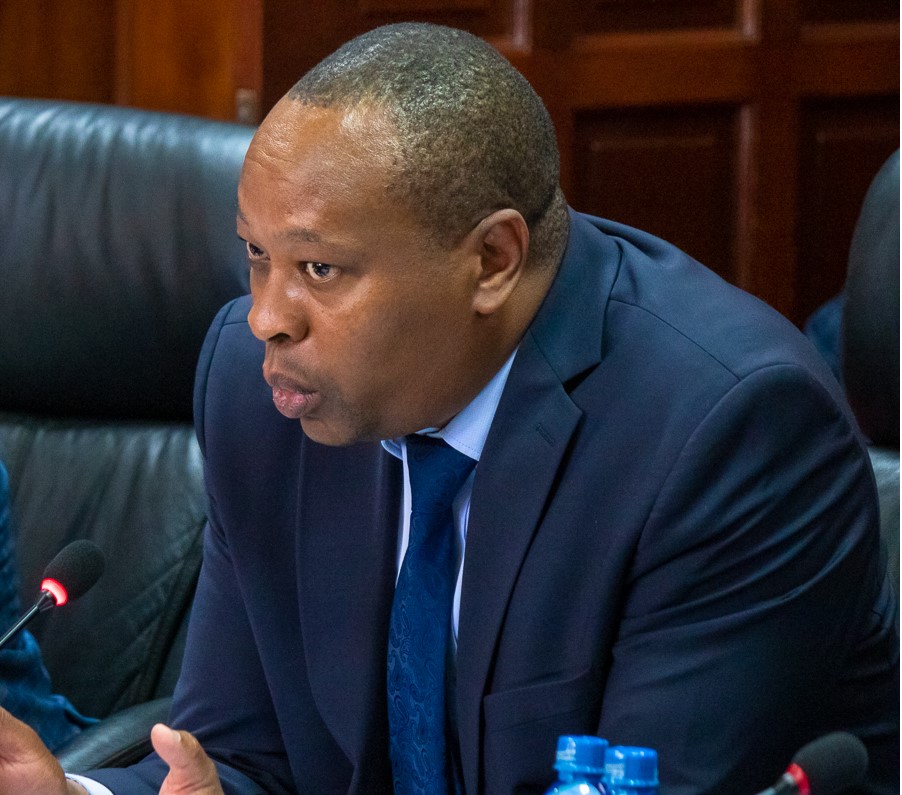While overseeing significant projects such as the Nairobi Expressway and the Mombasa Road rehabilitation, questions arose over contract awards, particularly one granted to Shovels and Trovels Construction Company. The firm, reportedly linked to Belgut MP Nelson Koech and his wife Yvonne Kones (daughter of the late Kipkalya Kones), faced public criticism over its technical capacity and alleged political connections.
Of special interest to auditors was the controversial KSh28 billion Dongo Kundu Bypass project, which investigators believe may have involved kickbacks and conflicts of interest. Additionally, the National Land Commission (NLC) and KeNHA leadership were jointly under investigation for irregularities in land compensation processes.
Ndung’u’s political past further complicated his standing in the current administration. Appointed during President Uhuru Kenyatta’s tenure, the Githunguri-born engineer was seen as a financial backer of Raila Odinga’s 2022 presidential bid. His close ties to Uhuru Kenyatta, now at odds with President Ruto, made him a marked man in Ruto’s government.
Further complicating matters, Ndung’u was accused of covertly supporting opposition-linked figures, including former Interior CS Fred Matiang’i, who some believe is being groomed by the Uhuru camp to challenge Ruto in 2027. Investigators reportedly flagged financial links between Ndung’u and Jubilee Party activities, prompting suspicion of sabotage from within.
While maintaining political neutrality is typically encouraged in public service, Ndung’u’s apparent political aloofness was seen as a liability. In a hyper-politicised environment like Kenya’s public sector, insiders suggest that his failure to grasp the prevailing political winds undermined his survival.
Observers argue that an effective DG must strike a balance between technocratic independence and political awareness. Ndung’u, according to sources, lacked that balance, leaving him exposed in a regime that expects absolute alignment with its agenda.
Ndung’u also reportedly fell out with powerful figures in the Ruto administration, particularly National Assembly Majority Leader Kimani Ichung’wah, a key player in Mt Kenya and national politics. Their differences, both political and personal, are believed to have further isolated the DG, especially within the so-called “deep state” of the current regime.
KeNHA remains one of Kenya’s most resource-rich state corporations, managing billions in annual infrastructure budgets and donor-funded mega-projects. Insiders believe that Ndung’u’s removal clears the way for the installation of a more “compliant” DG, someone better positioned to accommodate the political and financial interests of top figures in Ruto’s government.
Of particular interest is KeNHA’s five-year (2023–2027) Strategic Plan, which includes a KSh117 billion allocation for new road projects. The approval of the KSh90 billion Rironi–Mau Summit highway also triggered behind-the-scenes realignments, as competing interests jostled for influence.
Ndung’u’s tenure also oversaw the launch of two major donor-funded roads, the Isiolo–Mandera Highway and the Kitale–Morpus Highway, both of which sparked intense lobbying from various political quarters.
In a nutshell, Ndung’u’s resignation was not simply a personal decision; it was the culmination of sustained pressure from a mix of political hostility, corruption investigations, and behind-the-scenes wrangling over lucrative infrastructure deals. His exit reflects the broader realignment underway in Kenya’s public service, where political loyalty is increasingly a non-negotiable requirement for survival.
[/full]





